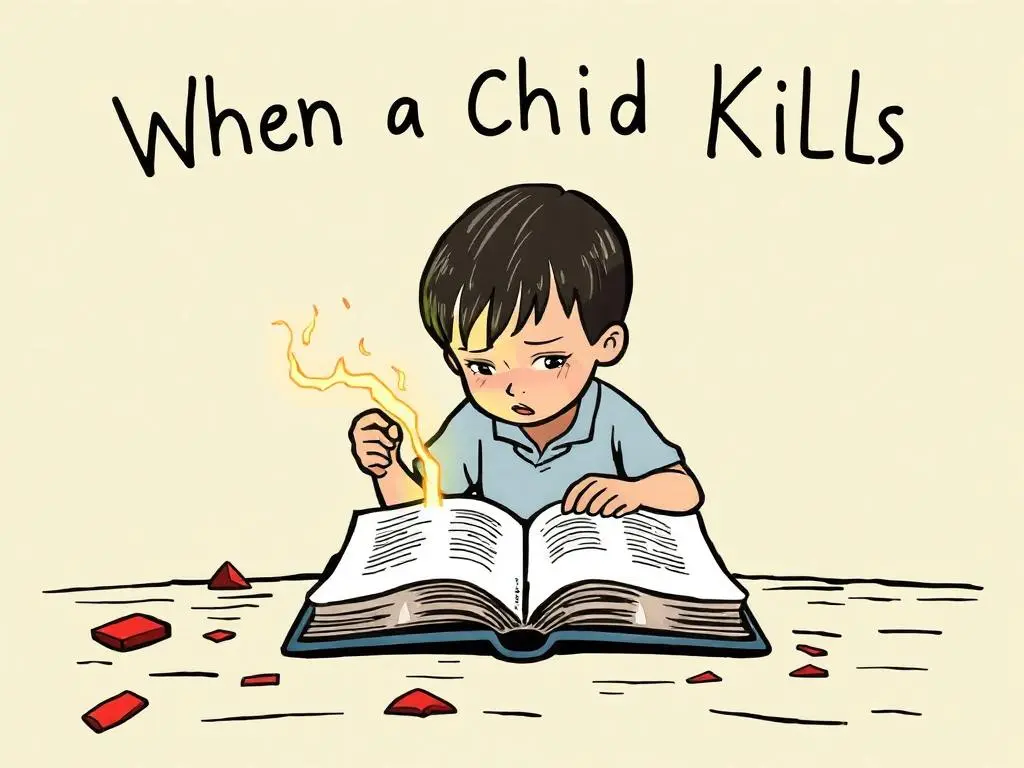The Celestial Hunter, by Roberto Calasso: An Excerpt
I
IN THE TIME OF THE GREAT RAVEN
In the time of the Great Raven even the invisible was visible. And it continually transformed itself. Animals, at that time, were not necessarily animals. They might happen to be animals, but sometimes they were humans, gods, lords of a species, demons, ancestors. And humans weren’t necessarily humans but could also be the transient form of something else. There were no tricks for recognizing those that appeared. They had to be already known, as one knows a friend or an adversary. Everything, from spiders to the dead, occurred within a single flow of forms. It was the realm of metamorphosis.
The change was continual, as later happened only in the cavity of the mind. Things, animals, humans: distinctions never clear cut, always temporary. When a vast part of what existed withdrew into the invisible, this didn’t mean it stopped happening. But it became easier to think it wasn’t happening.
How could the invisible return to being visible? By animating the drum. The stretched skin of a dead animal was the steed, it was the journey, the gilded whirlwind. It led to the place where the grasses roar, where the rushes moan, where not even a needle could pierce the gray thickness.
[ Return to the review of “The Celestial Hunter.” ]
* * *
When hunting began, it was not a man who chased an animal. It was a being that chased another being. No one could say with certainty who each of them were. The animal being chased could be a man transformed or a god or simply an animal or a spirit or a dead being. And, one day, humans added another invention to the many others: they began to surround themselves with animals that adapted to humans, whereas for a very long time it had been humans that had imitated animals. They became settled—and already somewhat staid.
* * *
Why so much hesitation before setting off to hunt the bear? Because the bear could also be a man. People had to be careful when talking, since the bear could hear everything said about it, even when it was far away. Even when it retired into its den, even when it was asleep, the bear carried on following what was happening in the world. “The earth is the ear of a bear,” people said. When they met to plan the hunt, the bear was never named. And generally, if the bear were mentioned, it was never called by its name: it was “Old Man,” “Old Black Man,” “Grandfather,” “Cousin,” “Worthy Old Man,” “Black Beast,” “Uncle.” Those preparing for the hunt avoided saying anything. Cautious, wrapped in concentration, they knew the slightest sound could ruin the enterprise. If the bear appears unexpectedly in the forest, it’s a good idea to step aside, take off one’s hat, and say: “Go on your way, most honorable one.” Otherwise one tries to kill it. The whole of the bear is valuable. Its body is medicine. When they managed to kill it, they ran off immediately. Then they would return to the scene, as if by chance, as though they were taking a stroll. And they would discover to their great surprise that someone unknown had killed the bear.
The first divine being whose name it was forbidden to mention was the bear. In this respect monotheism was not an innovation but a revival, a hardening. The novelty was the prohibition on images.
* * *
Knowing that the bear understood everything they said, they would talk with it before attacking, or immediately after. “It wasn’t us,” some would say. They would thank the bear for allowing itself to be killed. Often they would apologize. Some would add: “I’m poor, this is why I’m hunting you.” Some would sing as they killed the bear, so that the bear, while dying, could say: “I like that song.”
They would hang the bear’s skull in the branches of a tree, sometimes with tobacco between its teeth. Sometimes decorated with red stripes. They attached ribbons to it, wrapped the bones in a bundle, and hung them from another tree. If one bone was lost, the spirit of the bear would hold the hunter responsible. Its nose ended up in some secret place in the woods.
* * *
When they captured one of the bear’s cubs they would put it in a cage. It was often nursed by the hunter’s wife. In this way it grew up, until one day the cage was opened and “the dear little divine thing” was invited to the feast at which it would be sacrificed. Everyone would dance around the bear and clap their hands. The woman who had nursed it would cry. Then a hunter would say a few words to the bear: “O thou divine one, thou wast sent into the world for us to hunt. O thou precious little divinity, we worship thee: pray hear our prayer. We have nourished thee and brought thee up with a deal of pain and trouble, all because we love thee so. Now, as thou hast grown big, we are about to send thee to thy father and mother. When thou comest to them please speak well of us, and tell them how kind we have been; please come back to us again and we will sacrifice thee.” Then they would kill it.
* * *
The oldest thought, the thought that for the first time felt no need to be presented as a story, took the form of aphorisms on hunting. Like a murmur, between tents and fires, transmitted like nursery rhymes:
“Wild animals are similar to human beings, only more sacred.”
“Hunting is pure. Wild animals love people who are pure.”
“How could I hunt, if before it I had not done a drawing?”
“The biggest danger in life is that the food of humans is all made of souls.”
“The soul of the bear is a miniature bear that is found in its head.”
“The bear can talk, but prefers to remain silent.”
“Those who talk to the bear, calling it by name, make it gentle and harmless.”
“An inept man who sacrifices takes more wild animals than an able hunter who doesn’t sacrifice.”
“Animals that are hunted are like women who flirt.”
“Female animals seduce the hunters.”
“Every hunt is a hunt for souls.”
[ Return to the review of “The Celestial Hunter.” ]
* * *
In the beginning it wasn’t even clear what hunting was for. Like an actor who tries to enter the role of a character, they were trying to become predators. But certain animals ran faster. Others were forbidding and circumspect. And then, what was killing? Not much different from being killed. If the man became the bear, when he was killing it he was attacking himself. And all the more obscure was the relationship between killing and eating. Those who eat are making something disappear. This is even more mysterious than killing. Where does it go when it disappears? It goes into the invisible. Which eventually teems with presences. There is nothing more alive than absence. What, then, is to be done about all those beings? Perhaps they need to be helped on their way to absence, to be accompanied for part of their journey. Killing was like saying good-bye. And, like every good-bye, it required certain gestures, certain words. They began to celebrate sacrifices.
* * *
Hunting starts as an inevitable act and ends as a gratuitous act. It elaborates a sequence of ritual practices that precede the act (the killing) and follow it. The act can only be encompassed in time, as the prey is encompassed in space. But the course of the hunt itself is unnamable and uncontrollable, like intercourse. No one knows what will happen between hunter and prey when they face each other. But what is certain, prior to the hunt the hunter performs acts of devotion. And after the hunt he feels the need to offload a feeling of guilt. He welcomes the dead animal into his hut like a noble guest. In front of the bear that has just been cut into pieces, the hunter murmurs a prayer of vertiginous sweetness: “Allow me to kill you even in the future.”
* * *
The prey has to be brought into focus: the isolating gaze reduces the field of vision to one point. It is a knowledge that proceeds through successive gaps, carving figures out from a background. Circumscribing them, it isolates them like a target. Indeed, the gesture of carving them out is already the gesture that attacks them. Otherwise the figure is not born. Myths, each time, are a superimposition of severed outlines. By pushing this way of knowledge each time to the extreme, by accumulating outlines, the backdrop from which they had been torn once again begins to form. This is the knowledge of the hunter.
* * *
With pastoralism and agriculture, the animal was just an animal, forever separated from man. For hunters, on the contrary, the animal was yet another being, neither animal nor human, hunted by beings who were neither animals nor humans. When that event took place which was the event of every history before history, when the separation took place from something called animal by something that would be called man, no one thought wisdom—old and new wisdom—could be found anywhere other than in someone who shared the two forms of life. Among the caves and forests of Mount Pelion, Chiron the Centaur became the source of wisdom, the one who more than any other could teach justice, astronomy, medicine, and hunting: almost everything that could be taught at that time.
For the heroes raised by Chiron, hunting was the first element of paideía. But that “education,” that first proof of aret?, of the “virtue” that would then be so frequently evoked, took place entirely outside the bounds of society. And it had no use. The hunting practiced by the heroes did not serve to nurture the community. It was a bloody and solitary exercise, practiced for no further purpose. In the hunt, the animal turns against itself and tries to kill itself. The great hunters, before being protagonists in many tales of metamorphosis, were themselves the result of a metamorphosis. Apollo, before killing the wolf or mice, was a wolf and a mouse. Artemis, before killing bears, had been a bear. The pathos of hunting, the complicity between hunter and prey, goes back to the beginning, when the hunter was himself the animal, when Apollo was the general of an army of mice and head of a pack of wolves. The foundation of hunting was a discovery of logic: the working of negation. This founding and intoxicating discovery needed to be perpetually confirmed, repeated. While the life of the city pulsated, it was matched by another parallel life in the mountains. Tireless and solitary, Apollo and Artemis, and Dionysus, too, carried on hunting. The energy that their gestures unleashed was the necessary allusion, the framework hidden behind market trading, families at sleep, laboring in the fields. None of all that constituted city life could have existed without those hunts, those mountain ambushes, without those arrows shot, and that blood. It might be said that society had never felt itself sufficiently alive, and perhaps real, without that parallel and superfluous, roaming life of the hunter gods lost in the woods. Like the monk’s prayer, the silent pursuit of the hunter gods held up the walls that enclosed the city: indeed, it was that hunting that encircled it, like a perpetual whirlwind.
* * *
Men became metaphysical animals during the hunt. Agriculture would give only one key element to thought: rhythm, the alternation between blossoming and withering. But the burden of society on man would be much increased. The great cities are heirs to those places where reserves of food were kept for the first time in tall jars in storehouses. Hunters could have no idea about reserves. They had no inventories, nor records.
* * *
The paleoanthropologist Jean Clottes found himself at Rocky Hill, in central California, in front of a cave wall decorated with pictures. He had been taken there by Hector, a Yokut Indian, the spiritual guardian of the site. Clottes concentrated on a figure that brought to mind a shaman with his drum. “It’s a bear,” said Hector. Surprised, the paleoanthropologist replied: “Really? I would have thought it was a man.” “It’s the same thing,” said Hector. And he fell silent.
* * *
One of the signs of detachment from the animal came when a group of men disguised themselves as a pack of wolves: finally interchangeable, equal, like the spokes of a wheel. The intoxication was twofold and simultaneous: the intoxication of the hunted animal that turns into a predator—an intoxication of power and of metamorphosis, while still closed inside the animal circle; and the intoxication of the being that finds its equal, its substitute, its equivalent—an intoxication of knowledge, which does not reveal itself in any visible sign but marks a gap that will, from then on, be unbridgeable. The first equals were the wolves and the dead. That pack of beings that each looked like a duplication of the other took a decisive step toward abstraction: from that moment the world was branded with the mark of identity. It was their invisible banner. Its empire is revealed in a multiple, roaming, ubiquitous figure.
In order to be separated from animal continuity, the first stratagem was the mask, camouflage. That pack of wolves that roamed the forest consisted of the first men, the first who felt so irremediably human that they sought to disguise themselves as wolves. When man became man alone, a last curtain could hide him from the world: a mask of silk or velvet that left his mouth exposed. In French it is called a loup: because certain wolves carry the shape of a mask on their face, as if they were inviting man to imitate them, disguising himself as a wolf.
[ Return to the review of “The Celestial Hunter.” ]




